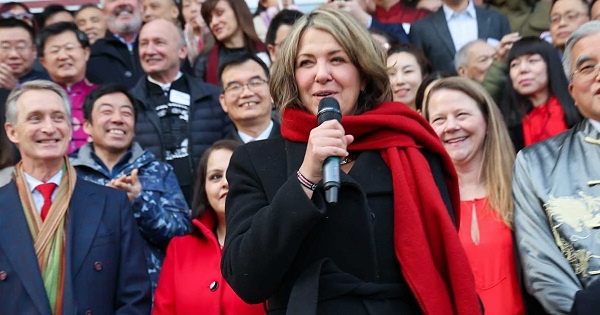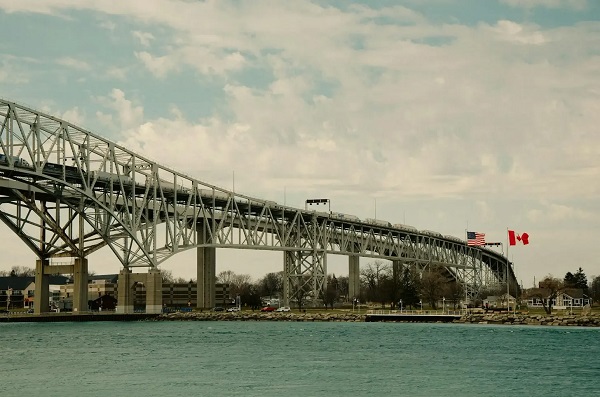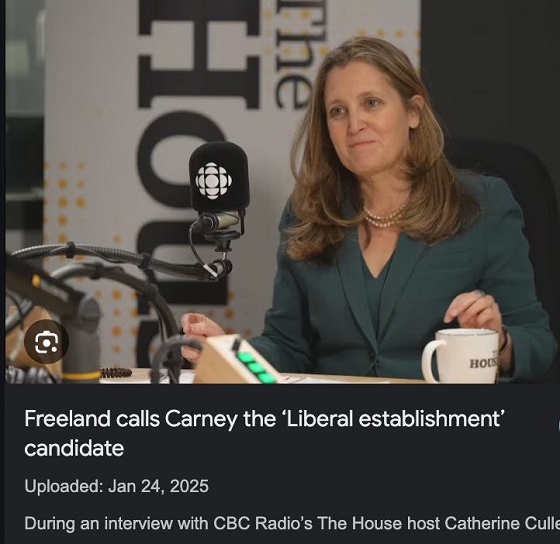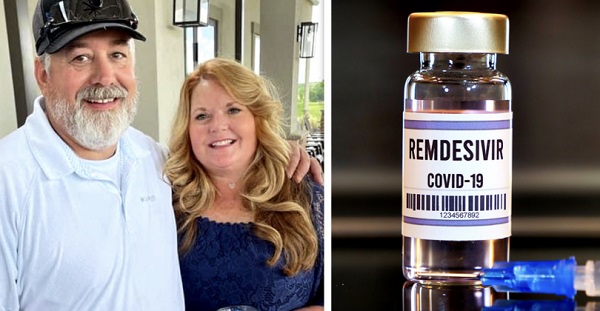armed forces
Trump admin reveals the federal government awarded over $100 million in contracts to Reuters
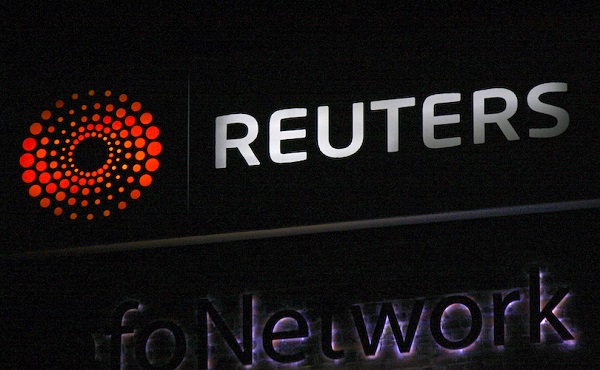
From LifeSiteNews
The Pentagon gave $9 million to Reuters for program called ‘large scale social deception’
President Donald Trump highlighted this morning the finding that the Department of Defense (DOD) paid the leftist media outlet Reuters $9 million for a program labeled “large scale social deception,” and he has demanded that they return the money.
“DOGE: Looks like Radical Left Reuters was paid $9,000,000 by the Department of Defense to study ‘large scale social deception.’ GIVE BACK THE MONEY, NOW!” wrote Trump on Truth Social.
Late Wednesday evening, Elon Musk shared a screenshot from USAspending.gov showing that the Department of Defense had indeed dispersed an award to Thomson Reuters Special Services LLC, the parent company of the media group Reuters, for a project labeled “active social engineering defense”(ASED) and “large scale social deception.”
Reuters was paid millions of dollars by the US government for “large scale social deception”.
That is literally what it says on the purchase order! They’re a total scam.
Just wow. https://t.co/GGxoVQSwN8
— Elon Musk (@elonmusk) February 13, 2025
A perusal of USAspending.gov shows that the U.S. government has awarded over $100 million in contracts to Reuters and confirms that the DOD awarded Reuters $9,147,532 under the “description” label ASED and “large scale social deception,” for a time period from 2018 to 2022, part of the period of Trump’s first term.
For comparison, other government contracts to Reuters include the DOD’s awarding of over $12 million under the description “mass effect,” the DHS awarding $5.1 million for “data analysis,” and the Department of Justice (DOJ) giving a few million for “risk mitigation services.”
A more detailed overview of the contract on highergov.com shows the description “SIMULATION TESTING AND MEASUREMENT LARGE SCALE DECEPTION” but does not further expand upon the activities the award intends to fund.
Most of those who commented on Musk’s X post blasted the finding as a straightforward exposure of government deception. One commentator questioned whether the description was purportedly meant to signify defense against “social deception,” as the contract description signified defense against social engineering.
Others pointed out that deception is a standard part of psychological operations, as admitted in an Army field manual, No. 3-13.4, “Army Support to Military Deception”:
Military deception is actions executed to deliberately mislead adversary military, paramilitary, or violent extremist organization decision makers, thereby causing the adversary to take specific actions (or inactions) that will contribute to the accomplishment of the friendly mission. Deception applies to all levels of warfare, across the range of military operations, and is conducted during all phases of military operations. When properly integrated with operations security and other information-related capabilities, deception can be a decisive tool in altering how the enemy views, analyzes, decides, and acts in response to friendly military operations.
Some commentators highlighted the fact that the Central Intelligence Agency (CIA) has used American news media for propaganda purposes, most notably in a project known as “Operation Mockingbird.” At the time, the CIA admittedly hired at least 400 journalists to serve its aims, in part by writing “fake stories,” according to the journalist who exposed the scandal in 1977.
Stunningly, despite the millions it receives in government contracts, Reuters claims to be an “independent” and “stateless” news organization. It states on its website:
Independence is the essence of our reputation as a “stateless” global news organisation and fundamental to the trust that allows us to report impartially from all sides of a conflict or dispute. It is crucial to our ability to report on companies, institutions and individuals in the financial markets, many of whom are also our customers, without regard for anything other than accuracy, balance and the truth. Our independence stems not only from the structure of Reuters but also from our duty as journalists to avoid conflicts of interest or situations that could give rise to a perception of a conflict.
armed forces
Pierre Poilievre promises to cut Canada’s funding of global projects overseas
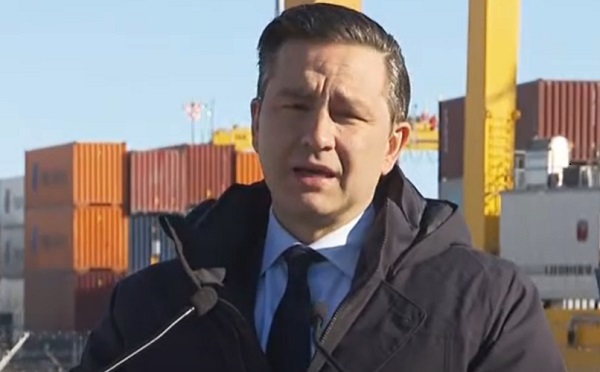
From LifeSiteNews
Pierre Poilievre promised that a new base in the Arctic would be ‘up and running within two years’ after he becomes prime minister and that the money to do so will come from cutting ‘foreign aid.’
Conservative Party of Canada (CPC) leader Pierre Poilievre vowed that he would cut Canadian foreign aid given to “global” organizations and other groups worldwide should his party form the next government.
Speaking at a press conference on Monday in Iqaluit, Nunavit, about his plans for the nation’s Arctic defences, Poilievre said that funding of future bases will “100 percent” come out “of our foreign aid budget.”
“In fact, today’s announcement will actually reduce the deficit because I plan to cut foreign aid more than the full cost of the announcement that I’ve made today,” he said.
Poilievre promised that a new base in the Arctic would be “up and running within two years” after he becomes prime minister and that the money to do so will come from cutting “foreign aid.”
“Let me be clear: the Canadian Arctic belongs to Canadians, and Canadians will take back control of their Arctic waters, Arctic skies, and Arctic land,” he said.
“All of these improvements will be funded by dramatically cutting foreign aid, most of which or a lot of which goes to dictators, terrorists, and global bureaucracies.”
Poilievre said the cuts in foreign aid are needed because Canada has “enough problems at home.”
“We’ve got our own backyard to protect. We can’t be sending billions of dollars to other places, often, and much of it is wasted and stolen and swallowed up by bureaucracies that act against our interest,” he added.
As reported by LifeSiteNews, Global Affairs Canada (GAC) the government arm that doles out money to foreign aid projects, with a similar mandate to America’s now-embattled United States Agency for International Development (USAID), was exposed for funding several pro-LGBT and other woke projects. In fact, a GAC spokesperson recently boasted it has promoted an “inclusive, intersectional, transformative” foreign “feminist” policy for as long as Justin Trudeau has been prime minister.
When looking through the archives, some projects funded by GAC include $6,806,618.19 for “ensuring meaningful engagement through reform for gender equality” and $2,658,050 for “Gender Equality and Women’s Empowerment: Disaster Resilience in Latin America and the Caribbean.”
Groups such as the Canadian Taxpayers Federation has said funding must be drastically slashed to GAC’s budget.
As reported by LifeSiteNews last week, Conservative MP Shuv Majumdar alleged that GAC had “wiped” its searchable public database “clean,” effectively “hiding where your taxpayer dollars are going,” which includes spending millions on pro-LGBT and DEI initiatives across the world.
GAC denied this was the case for the reason its database was unsearchable. As of press time, GAC notes that while its database is now working it is still having “performance slowdowns.”
armed forces
Canada could cut deal with U.S.—increase defence spending, remove tariffs
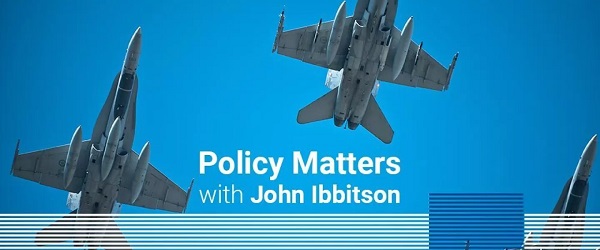
From the Fraser Institute
Because we live in dangerous times, and because an honest country keeps its word, Canada should meet its NATO commitment to spend at least 2 per cent of GDP on defence. But there’s another reason to live up to that promise—it’s good for trade.
Countries that are able to defend themselves earn the respect of their allies. That respect can provide tangible benefits. Consider Cyprus and the Auto Pact.
In the winter of 1964, in the depths of the Cold War, violence between Greek and Turkish Cypriots threatened to escalate into war between Turkey and Greece. President Lyndon Johnson, anxious to prevent war between two NATO members, was hugely grateful when Prime Minister Lester Pearson agreed to dispatch a peacekeeping force to the island.
“You’ll never know what this may have prevented,” said Johnson. “Now what can I do for you?” As Pearson noted in his memoirs, “I had some credit in the bank.”
A year later, Canada and the United States signed the Auto Pact, which guaranteed minimum levels of production for the Canadian auto industry. “I believe that Johnson’s willingness to agree to the Auto Pact the next year, an agreement that hugely benefited Canada’s auto sector, may well have been Pearson’s reward for Cyprus,” wrote historian J.L. Granatstein years later.
Canada’s relations with its NATO allies cooled in the years when Pierre Trudeau was prime minister. Trudeau considered pulling out of NATO entirely, but in the end contented himself with greatly reducing Canada’s troop presence in Europe. But Trudeau began to show new respect for NATO when he sought to diversify Canada’s trading relationships. “No tanks, no trade,” West German Chancellor Helmut Schmidt reportedly told him. Trudeau subsequently boosted defence spending and Canada acquired German Leopard tanks.
In the 1980s, as Brian Mulroney sought to improve relations with the U.S., his government maintained defence spending at or near 2 per cent of GDP, even as the government reduced spending in other areas to bring down a chronic deficit. On Mulroney’s watch, Canada retained a robust commitment to NATO and NORAD. In February 1990, former Cold War antagonists agreed to a process for German reunification during the Open Skies conference in Ottawa; six months later, Canada joined a U.S.-led coalition that ejected Iraqi forces from Kuwait.
And in the midst of this stalwart support, Canada and the U.S. negotiated their historic free trade agreement.
Then came the so-called Decade of Darkness, as Jean Chretien’s government cut funding to the military to help balance the budget. In the 2000s, Stephen Harper ensured that the Canadian mission in Afghanistan was properly equipped, but his government further cut spending in the wake of the 2008-09 financial crisis. By the time Justin Trudeau came to power, defence spending was at 1 per cent of GDP.
While it appears Justin Trudeau’s government increased defence spending, part of that is the accounting trick of putting veterans’ benefits in the budget. In fact, Canada remains virtually the sole outlier among NATO members in having no credible plan to get to 2 per cent any time soon.
Last spring, 23 U.S. senators (both Democrat and Republican) issued a letter taking Canada to task for failing to meet its defence commitments. And they spoke plainly. “We are concerned and profoundly disappointed that Canada’s most recent projection indicated that it will not reach its two percent commitment this decade.”
In that sense, Donald Trump was speaking for everyone in Washington when, as president-elect, he told reporters that “we basically protect Canada… we’re spending hundreds of billions a year to take care of Canada.”
That doesn’t in any way excuse the punitive tariffs the administration imposed on Canada and Mexico over the weekend. Those economic sanctions are capricious, vindictive and mutually damaging. Canada had no choice to but to respond in kind.
But it’s also true that other countries no longer take this country seriously. During the Biden administration, the U.S., the United Kingdom and Australia entered into the AUKUS security pact. Canada wasn’t invited. And QUAD security dialogue involving Australia, India, Japan and the U.S. is not QUINT, because we weren’t asked to join.
Canada will have a new federal government within months. Its highest priority must be to restore free trade with the U.S. One way to negotiate seriously with the Trump administration may be to offer a specific concrete program of investment in the NORAD partnership, in exchange for the removal of tariffs.
If the Americans agree, it wouldn’t be the first time that trade and defence were intertwined.
-
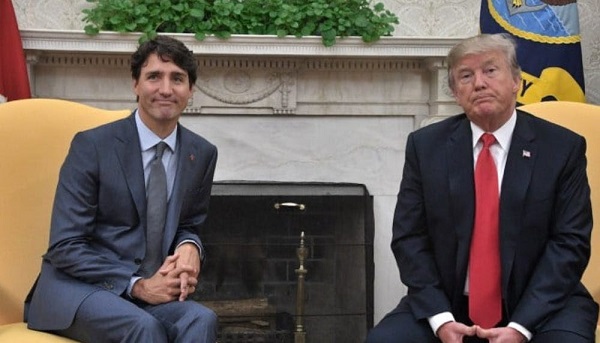
 Crime2 days ago
Crime2 days agoWhy is Trump threatening Canada? The situation is far worse than you think!
-
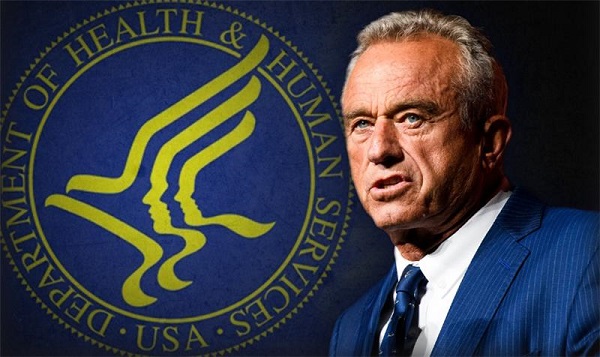
 Health2 days ago
Health2 days agoSenate confirms RFK Jr. as Trump’s secretary of Health and Human Services
-
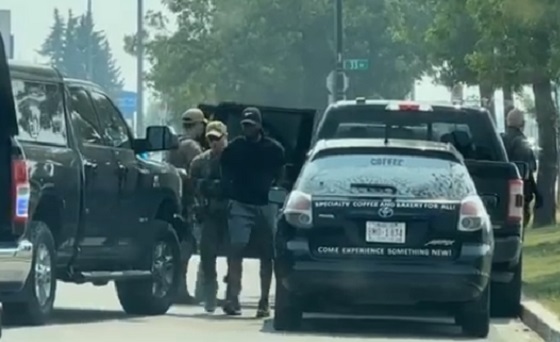
 Alberta Law Enforcement Response Team1 day ago
Alberta Law Enforcement Response Team1 day agoAlleged Human Traffickers arrested in Red Deer, Montreal, and Edmonton
-

 Bruce Dowbiggin2 days ago
Bruce Dowbiggin2 days agoCollision Course: Boomers Love Canada. Millennials Want A Better Offer
-

 Community1 day ago
Community1 day agoNew Documentary “Cooking with Hot Stones” Explores History of Fort Assiniboine, Alberta
-

 Business2 days ago
Business2 days agoCarbon tariff proposal carries risks and consequences for Canada
-
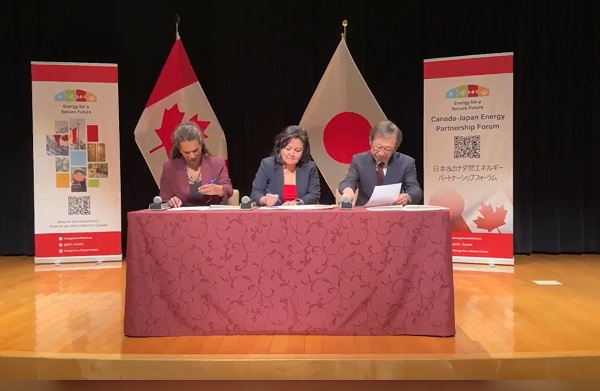
 Business2 days ago
Business2 days agoAn era of Indigenous economic leadership in Canada has begun
-
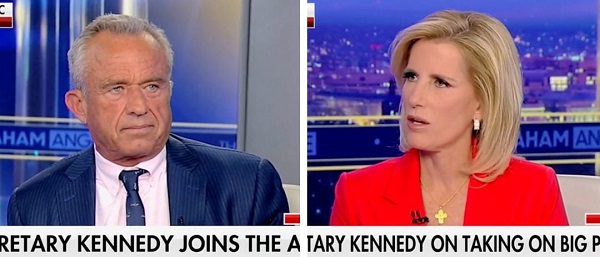
 Daily Caller1 day ago
Daily Caller1 day ago‘The One Place We Really Need To Change Policies’: One Of RFK Jr.’s Top Priorities


